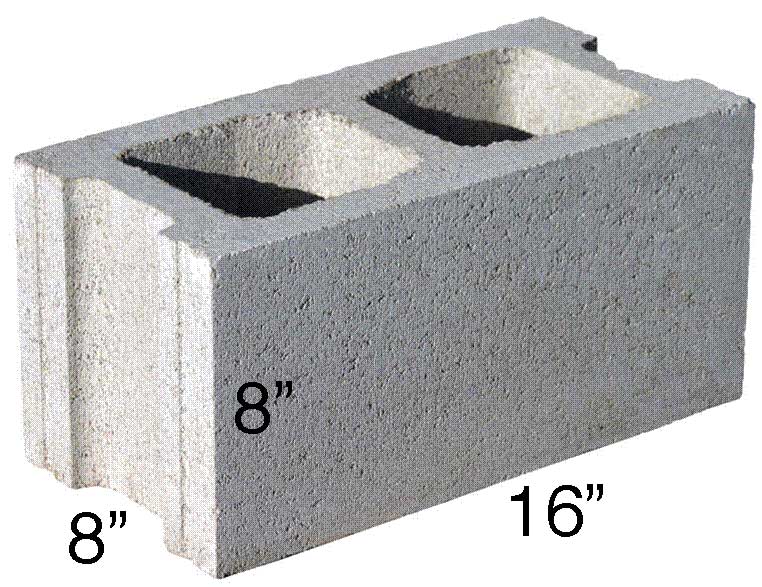Concrete Block Calculator
- AREA & DEPTH
- VOLUME
Result
Blocks :
Bags of Mortar:
yds3 Sand:
Estimated Material Cost:
Block Cost:
Mortar Cost:
Sand Cost:
Total Cost:
How to Calculate Concrete Blocks
There are several formulas to figure out how many concrete blocks are necessary for a wall project. Start by measuring the wall’s width and height in feet.
Step One: Find Wall Square Footage
Once you have the wall measurements, calculate the square footage of the wall by multiplying the width times the height.
Step Two: Find Block Square Footage
Now you need to figure out the square footage of the block you are using. To do this, multiply the height and length of the block and divide by 144 – the number of square inches in a foot. The standard block size is 8″ high x 16″ long and has a square footage of 0.89.
144

Different size blocks will have different square footages; apply the formula above to find the solution. Check out our square footage calculator to determine the square footage of your block.
Step Three: Calculate Blocks
After you have found the square footage of both your wall and your block, determining the number of blocks you need is as simple as dividing the wall square footage by the block square footage.
block sq ft
We recommend adding 5%-10% additional blocks to account for broken blocks or blocks that need to be cut for the edges.
How to Estimate Grout or Concrete Fill
CMUs are hollow and designed to be filled with concrete during installation. Estimating the concrete needed to fill the cells in concrete block involves getting more measurements from the blocks.
When looking at a block from the top down, the areas that run front to back on the block are called “webs”, while the areas that run side to side are called the “shell”. To calculate the fill volume, you will need the number of webs, their thickness, and the thickness of the shell.
Typical measurements for webs and shells may be around 1″ or 1.25″ depending on the size of the block.
The fastest way to get an accurate volume of the cells in the CMUs is to take the length and width of the block and subtract the shell and web measurements. For a block is 8″ x 8″ x 16″, this would look like:
The volume of the core would therefore be:
Multiply this by the total number of blocks, and divide by 46,660 to get the total number of cubic yards needed. Use our block fill calculator to estimate the fill volume.